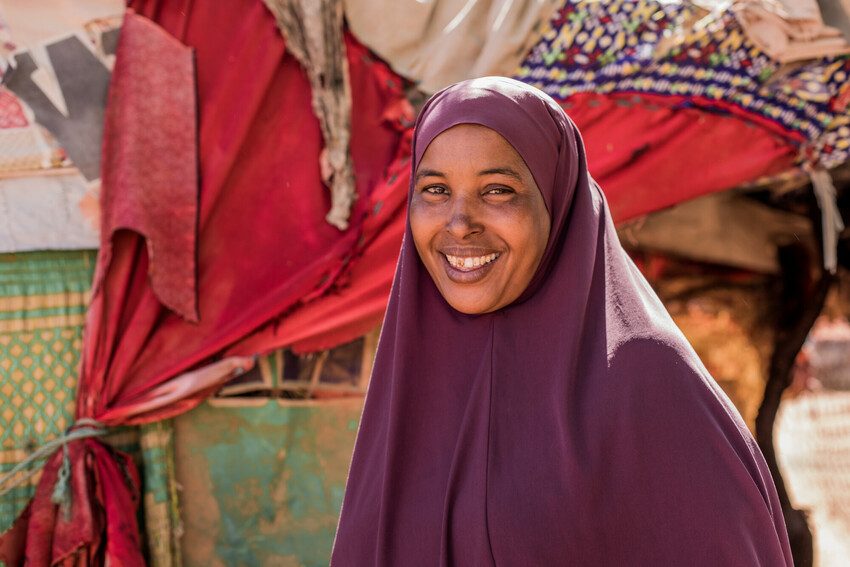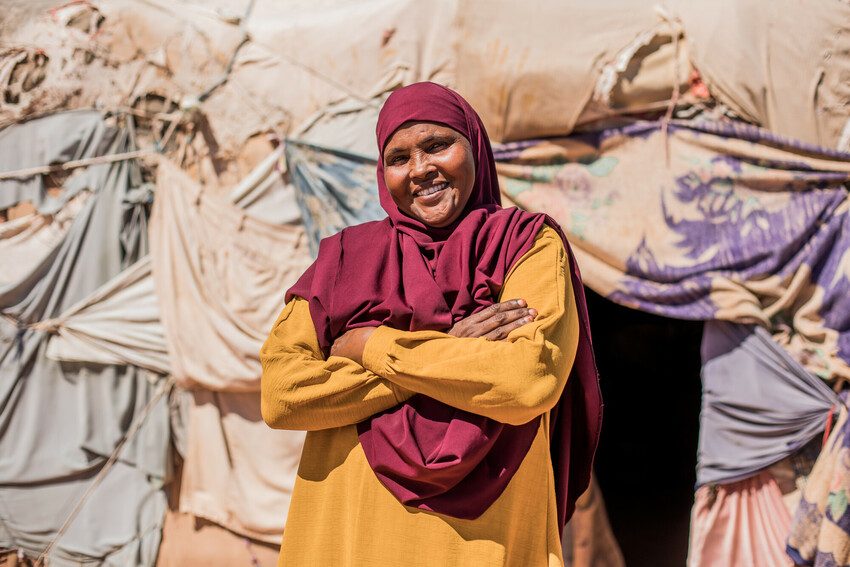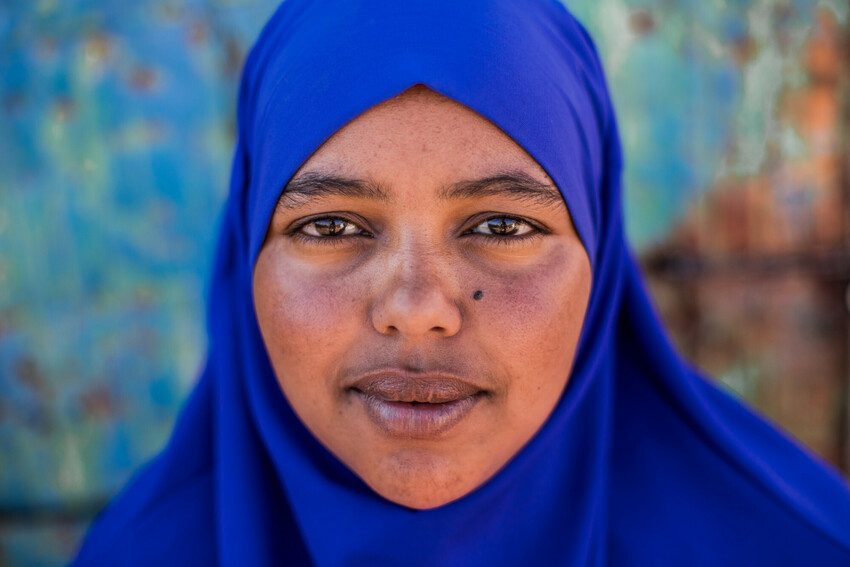Mothers stand strong against female genital mutilation
Mothers Rahma, Saafi and Cawo explain why they are saying no to female genital mutilation and will never let their daughters undergo the practice.

Saafi, Cawo and Rahma are mothers standing against female genital mutilation (FGM), they live at an internally displaced person camp in Somaliland, where the community is divided on FGM.
Creating awareness with a collective voice
Thirty-eight-year-old Rahma says that the only way to bring an end to female genital mutilation in Somalia is if girls, women and mothers stand together.
“We need to create awareness with a collective voice, the non-governmental organisations, religious leaders, governments need to speak with one voice to stop FGM. It is not something that will take a short time; this will take a long time, and we need different and constant efforts to unite our people against FGM.”
“We need to create awareness with a collective voice. We need different and constant efforts to unite our people against FGM.”
Rahma
“What changed me was when I learnt how harmful FGM is for girls. Not only me, but the community is now more aware. I have a 10-year-old daughter and I will never allow her to undergo FGM. I know the consequences myself and need to rescue my daughter and other girls in the community,” says Rahma determinedly.
A mother of 3 children, 2 sons and 1 daughter, Rahma says that the training she received from Plan International has helped her understand the negative consequences to girls’ health.
“Before, the elderly people in the community said that girls who didn’t undergo FGM wouldn’t get married. But now, I believe my daughter won’t face any problems with that. She will find someone who wants her just the way she is. I’m encouraging and calling on everyone to work with us, because together we can fight against FGM!”
Younger generation are key to a future without FGM
Forty-eight-year-old Saafi, mother of 10 children, including 4 daughters, explains views in the camp.

“The community is divided into 2 groups, 1 against and 1 for FGM. About 70% still practice FGM in our community. We need to increase the awareness about how harmful the practice is and let young girls themselves become advocates to stop it.”
She tells us that her eldest 2 daughters underwent FGM but having recently learnt more about the health implications for women and girls, she has decided not to have her 2 younger daughters undergo the practice.
“I understand it has nothing to do with religion and can have severe complications. I will never allow my daughters to go through it.”
Saafi
“I have 4 daughters. I did FGM to 2 of them and the other 2 are 8 and 6 years old. I understand it has nothing to do with religion and can have severe complications. I will never allow my daughters to go through it. I would say as a message to the community and people who are doing FGM to their children, to stop as there are no extra or forbidden part in their bodies, it will just cause damage, so stop harming girls.”
Many of the women who support FGM in the camp are elderly, believing that girls cannot get married without undergoing the practice to make them pure.
Saafi often goes to speak to the older women in the camp to ask them to stop promoting FGM. “With the elderly, they say they will stop practicing it but they continue – the new generation, the youth are the ones who can change it for good. Now people are aware, in their minds and hearts they know this is wrong.”
Resolved to prevent her daughter undergoing the practice
Young mother Cawo speaks directly to Somali mothers, urging them not to force their daughters to have FGM. “I would like to say to all, do not harm our young girls. We have suffered from this practice and I beg that no one should make the next generation of girls suffer too.”

Cawo is steadfast in her resolve to prevent her young daughter undergoing the practice. “FGM has many consequences, personally it has harmed me so badly. Because of the problems I have faced, I don’t want my daughter to undergo it. I don’t want my baby girl to be harmed mentally and physically, no girl should experience this.”
“The harm I faced from FGM is still a challenge till this day and follows me. I was 10 years old. I never healed,” 23-year-old Cawo explains.
Cawo is part of the younger generation of women who want to see an end to the practice. She underwent one of the most extreme forms of the practice.
Cawo got married at 19 years old and now has a one-year-old daughter. “After I got married, I encountered a lot of challenges. I was supposed to feel happy, but I felt the opposite to that, I felt sadness in my heart and pain in my body.”
Pregnancy and childbirth were also difficult for Cawo. She says, “Instead of being happy that I was married and had become a mother, I have only been in fear and pain. It never stops. I expected happiness but ended up with sadness and an injured body. Giving birth is normally painful but the pain was doubled with FGM, and I have still not recovered yet.”
Understanding the consequences of female genital mutilation
In Somalia, 98% of girls and women, aged 15-49, have undergone FGM. Despite the negative health implications for women and girls, it persists as a deeply entrenched social norm, rooted where violence against girls and women is socially acceptable.
Plan International is working alongside the Network Against FGM in Somaliland to increase community understanding of FGM and its harmful consequences. Our training workshops focus on the protection risks that children face, especially girls, including traditional practices such as FGM, early marriage and teenage pregnancies.
By establishing a network of community groups to advocate for change, we are reaching thousands of mothers with awareness raising information.
Categories: Sexual and reproductive health and rights